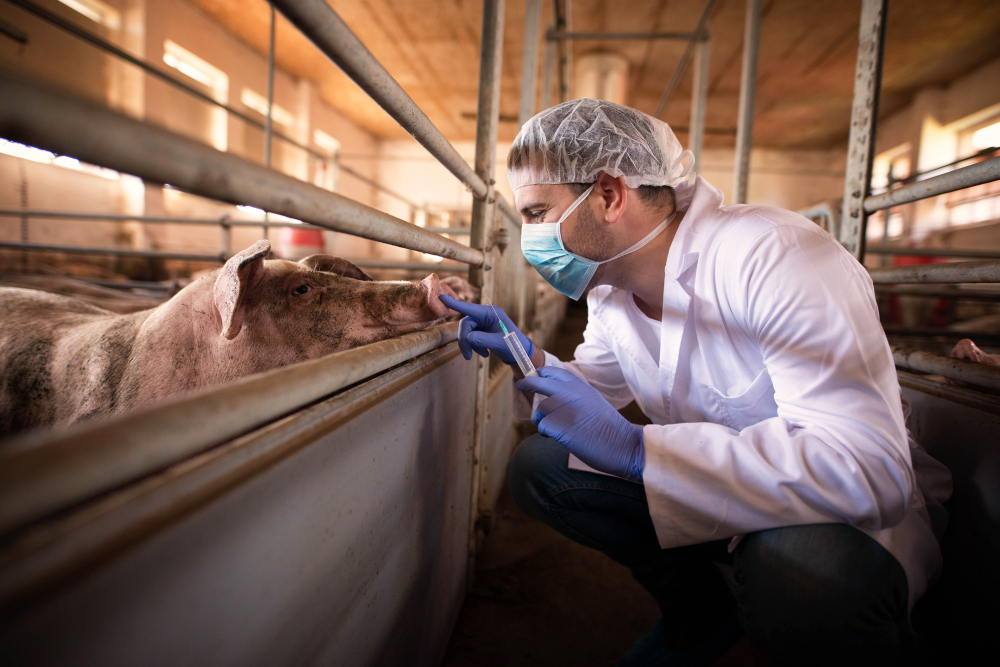This degree is ideal for students interested in animal health, nutrition, breeding, welfare, and the intersection between animals and human society. This guide provides a comprehensive overview of studying Animal Science in the UK, with additional information for students considering similar pathways in the USA, Canada, the EU, Australia, and New Zealand.
Studying Animal Science in the UK In the UK, Animal Science degrees are typically offered as BSc (Bachelor of Science) programmes over three years, or four years in Scotland. Some universities also offer a sandwich year or placement year for practical experience.
Entry Requirements Most UK universities require:
-
A-Levels: Biology is essential. Chemistry, Maths, or another science subject (like Physics or Environmental Science) is usually recommended.
-
Typical offers range from BBB to AAB, depending on the institution.
-
GCSEs: English, Maths, and Science are usually required at grade 4/C or above.
Course Content Modules commonly include:
-
Animal Physiology and Anatomy
-
Animal Nutrition
-
Genetics and Breeding
-
Animal Behaviour and Welfare
-
Livestock Production
-
Research Skills and Data Analysis
-
Practical husbandry and laboratory work
Top UK Universities for Animal Science
-
University of Nottingham
-
University of Reading
-
Harper Adams University
-
University of Edinburgh
-
Royal Veterinary College (RVC)
Career Options in the UK Graduates can pursue careers in:
-
Animal Nutritionist
-
Livestock or Farm Manager
-
Animal Welfare Officer
-
Laboratory Technician or Research Scientist
-
Animal Health Inspector
-
Graduate entry into Veterinary Medicine (with additional qualifications)
-
Education and Outreach Roles
Studying Animal Science in the USA In the USA, Animal Science is typically a four-year Bachelor of Science program. The curriculum often includes general education requirements alongside major-specific courses.
Entry Requirements Students must complete high school with strong grades in science subjects. Standardised tests like the SAT or ACT are often required.
Top US Universities
-
Cornell University
-
Texas A&M University
-
University of California, Davis
-
Iowa State University
-
Michigan State University
Studying Animal Science in Canada Canadian universities offer four-year BSc degrees in Animal Science or related fields such as Agricultural Science with an animal specialization.
Top Canadian Institutions
-
University of Guelph
-
University of Alberta
-
University of British Columbia
-
McGill University
Studying in the EU Across the EU, Animal Science degrees may be called Animal Husbandry, Agricultural Sciences, or Zootechnics, and vary by country in language and structure.
Notable Universities
-
Wageningen University & Research (Netherlands)
-
Swedish University of Agricultural Sciences
-
University of Copenhagen (Denmark)
-
University of Helsinki (Finland)
Studying in Australia Australia offers Animal Science or Animal and Veterinary Biosciences as three- or four-year programs. Universities place a strong emphasis on practical and field-based learning.
Top Australian Universities
-
University of Queensland
-
Charles Sturt University
-
University of Sydney
-
University of Melbourne
Studying in New Zealand New Zealand provides similar degrees, with a focus on livestock and pasture-based farming, reflecting the country’s agricultural strengths.
Top Institutions
-
Massey University
-
Lincoln University
Additional Qualifications and Postgraduate Study Animal Science graduates often pursue further study in areas such as:
-
Veterinary Medicine
-
MSc or PhD in Animal Science, Welfare, or Behaviour
-
Agricultural Economics
-
Wildlife Conservation or Ecology
Skills Gained
-
Scientific and analytical skills
-
Practical handling and management of animals
-
Communication and teamwork
-
Research and data interpretation
-
Problem-solving in agricultural and laboratory contexts
Conclusion Animal Science offers a rich and diverse career pathway for those passionate about animals and science. Whether you study in the UK or abroad, the degree opens doors to impactful careers in research, agriculture, welfare, and beyond. With growing concerns about food security, sustainable farming, and animal welfare, graduates in this field will continue to be in demand globally.





